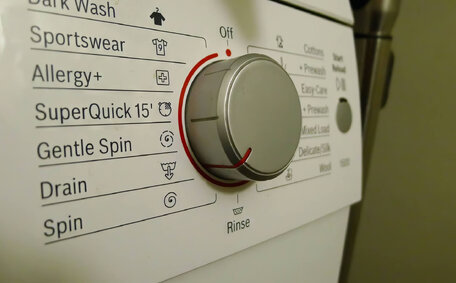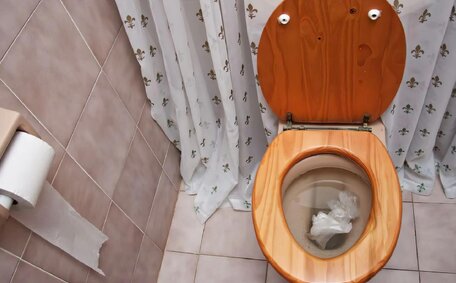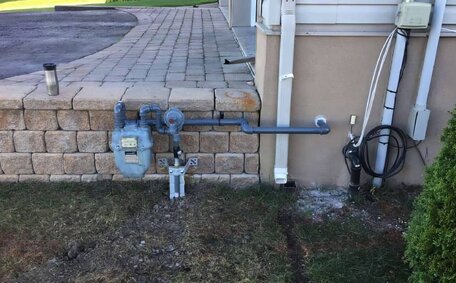Understanding Common Causes of Noisy Pipes
Noisy water pipes can be a vexing issue for homeowners. Pinpointing the root plumbing problems is crucial in addressing the noise. Several common causes of noisy pipes result in excessive noise:
Water Hammer
Water hammer occurs when water flow is abruptly stopped, resulting in hydraulic shock that causes pipes to shake and bang. Fitting a water hammer arrestor to the supply line can help neutralise these pressure surges.
Loose Pipes
Over time, Noisy water pipes can emerge as piping becomes loose, causing rattles when water flows. Securing water pipes making noise with clamps and braces may help to reduce the noise.
Worn Washers/Parts
Degraded washers, valves, and other plumbing system components can cause vibrations leading to noisy pipes. Replacing worn parts, like your toilet ballcock assemblies, will stop the rattling.
High Water Pressure
Excessive water pressure in your plumbing system can result in noisy pipes. A pressure regulator valve can help maintain optimal pressure and quiet pipes.
Identifying and tackling the root cause is often the best way to fix issues with noisy plumbing. A professional inspection may be needed in severe cases to get them fixed comprehensively.
Loose Piping Causing Rattling Noises
Rattling noises in your plumbing system can stem from loose pipes. Pipes may detach from their fittings and supports over time. When water flows through pipes, loose ones vibrate against studs and joists, creating a bothersome rattling or banging noise.
Fastening loose pipes with clamps, brackets, and anchor straps is an effective solution to silence rattling. Securely fastened pipes won’t vibrate and cause displeasing noise.
Fastening loose sections of piping can silence noisy water pipes by targeting the noise at its source. This direct solution addresses the source problem and confirms the usefulness of identifying loose piping as the cause of the noise issue. Taking action to secure pipes delivers quiet and calm to previously noisy plumbing.
Worn Out Faucet Washers Creating Whistling
Worn faucet washers often lead to whistling or screeching noises from taps. Over time, the rubber washers inside tap valves become hardened and compressed. This prevents them from forming a tight seal, allowing water to flow past at high velocity.
The small gap between the misshapen washer and the valve seat causes the whistling or screeching sound, which can occur as water rushes through. Replacing the old washers is a quick and easy DIY fix to stop the noise.
Start by shutting off water supply and relieving pressure by opening the tap. Match it up with a replacement washer at your local hardware store.
For stubborn tap valves, remove mineral deposits from the valve seat before inserting a new washer. Make sure to turn the water supply back on slowly and check for leaks.
If you have several taps making whistling noises, your issue could stem from high water pressure or partially closed supply valves. In that case, contact a professional plumber like Padstow Plumbing to inspect and adjust your plumbing system.
Excessive Water Pressure Damaging Pipes
High water pressure, when over 80 PSI entering the home’s plumbing system, can also cause noisy pipes and eventually damage your property. Excess pressure stresses your water pipes and joints, resulting in vibrations, water hammering, and leaks over time. Copper pipes could be especially prone to crimping and bursting under too much pressure.
Use a water pressure gauge on the incoming line to check if it’s the source of the problem. Consistently high pressure above 80 PSI calls for a main shut-off valve installation to maintain a safer 50-60 PSI. This regulates pressure right where the main water line enters the home.
Enlisting a professional plumber to address noisy water pressure can safeguard your plumbing and fixtures. Allowing high pressure to persist puts pipes at risk of premature failure. Taking action provides peace of mind knowing your plumbing system is safe from excessive wear and tear.
Sediment Buildup and Mineral Deposits
Sediment and mineral deposits can accumulate over time inside water heaters and pipe channels. This buildup causes soft rumbling or vibrating noises as water flows through. Hard water areas with high mineral content are especially susceptible.
Flushing the water system is the most effective method to resolve noise from sediment accumulation. For your hot water heater, draining the tank completely and de-scaling the interior can remove stubborn deposits. Purging both cold and hot water lines may require a professional plumber’s expertise.
Preventative maintenance like replacing old galvanised piping helps minimise sediment buildup. Water softeners also prevent water mineral deposits by filtering out calcium and magnesium. With routine care, noisy rumbling and vibrations from sediment can be avoided.
Water Hammer Causing Banging Noises
Water hammer is a leading cause of the loud banging or knocking noises in pipes. It happens when water flow inside a pipe is suddenly stopped, usually by quickly closing a faucet or valve. This sudden halt generates a hydraulic shock wave that causes the pipe to shudder.
High water pressure can cause water hammer by halting water flow abruptly, stressing the pipes. The loud sounds are often described as banging pipes, similar to a hammer striking a pipe, especially when hot water pipes are involved.
Installing arrestors is the best remedy for addressing water hammer noise and potential damage. These devices use an internal air chamber and pistons to absorb and dissipate the shock wave before it affects the pipes. Arrestors are installed near quick-closing fixtures and valves to mitigate water hammer.
For severe water hammer problems, a professional plumber should inspect your piping system. They can identify problem areas, check water pressure, and ensure arrestors are properly placed. Repiping may be necessary if pipes are badly damaged from chronic water hammer.
While quick DIY fixes like securing pipes may temporarily reduce the noise, arrestors are required to fully resolve water hammer. Properly addressing water hammer can protect your plumbing and provide peace of mind.
Maintaining and Recharging Air Chambers
Understanding the role of air chambers in absorbing hydraulic shock is pivotal to solving noisy water pipes. Over time, trapped air can become compressed or escape entirely. Routine maintenance helps keep air chambers working properly.
To maintain air chambers and get rid of the noise, you’ll need to recharge them by turning off main water briefly and injecting new air. This is done by shutting off the main water supply and draining the system briefly to relieve pressure.
Inject fresh air into the shut off valve using an air compressor with a tyre chuck until it shows approximately 80 psi on the gauge.
Recharging air chambers every 1-2 years will keep them functioning at full capacity. For severe water hammer issues, a Padstow Plumbing technician can inspect your chambers to determine if replacement is needed. Keeping air chambers properly charged reduces system noise and prevents pipes from fatiguing due to water hammer shock.
Adjusting Water Pressure Regulators
High water pressure entering your home’s plumbing system is a common cause of noisy pipes. Excessive pressure over 80 PSI stresses pipes and joints, leading to noise issues over time. A crucial way to prevent your noisy pipes is by installing and properly adjusting a water pressure regulator.
A regulator manages water pressure, ensuring it is not too high as it enters your home. It has an adjustable spring that can increase or decrease pressure. Ideally, the regulator should be set between 50-60 PSI. You can check your home’s water pressure using a gauge that connects to an outdoor spigot.
If the pressure can also consistently over 80 PSI, the regulator will need to be adjusted. Make small turns and check the gauge to avoid decreasing it too far. Getting help from a professional like Padstow Plumbing ensures it’s adjusted accurately.
Turning the adjustment screw clockwise lowers the pressure.
Keeping your regulator properly set not only silences noisy pipes, but also prevents leaks, bursts, and damage to appliances. This maintenance step provides long-term protection for your plumbing system. Adjusting water pressure ensures safe operation of your pipes.
When to Call a Professional Plumber
If DIY methods like securing pipes or replacing washers fail to eliminate the noise, Enlisting a certified plumber can be your next step. Persistent high water pressure over 80 PSI also warrants getting professional help to install and adjust a regulator. While minor noisy pipe issues can be DIY projects, there’s much you can do; don’t hesitate to call the professionals when you need it.
Additionally, If you’re unsure about the cause of the noise or lack the skills to address it yourself, get in touch with Padstow Plumbing on 1300 349 338 or emailing [email protected] for knowledgeable assistance.
Preventing Noisy Pipes in Your Home
Noisy pipes can be prevented through proactive maintenance and keeping your plumbing system in optimal condition. Here are some tips to help avoid issues with noisy pipes:
Regular Inspections
Regular plumber inspections can uncover leaks, loose fittings, and signs of corrosion. Preventative maintenance helps catch issues before they escalate.
Update Old Piping
Replace old galvanised or rigid piping with modern alternatives like copper, PEX, or CPVC, as recommended by your plumber. Updated pipes reduce water hammer and noise issues.
Install Water Hammer Arrestors
Arrestors absorb hydraulic shock, preventing banging and hammering noises whenever taps or your washing machine shuts off suddenly. Install arrestors near areas at high risk for water hammer.
Use Pipe Insulation
Insulating visible water lines dampens noise and vibration. Wrap noisy water lines with pre-slit foam insulation to mute sounds.
Adjust Water Pressure
Excessive water pressure strains pipes causing noise over time. Use a regulator to keep pressure between 50-60 PSI.
Schedule Annual Maintenance
Have a plumber perform annual maintenance on your water heater, valves and pipes. This prevents sediment buildup and keeps parts in working order.
Taking preventative steps and having regular professional maintenance from Padstow Plumbing helps avoid noisy pipe problems down the road. Be proactive to enjoy quiet plumbing for years to come.






